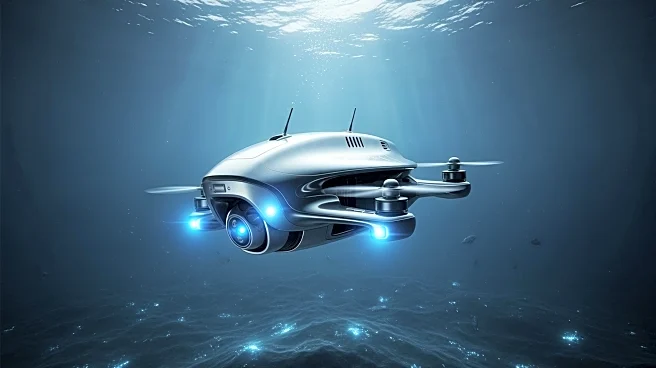What's Happening?
Britain has unveiled a new defense strategy against Russian saboteurs with the deployment of AI-powered underwater drones. Developed by the German company Helsing, these drones are designed to protect the UK's undersea cables from potential sabotage by Russian vessels.
The SG-1 glider drones can operate autonomously for up to three months, navigating UK waters without human intervention. This initiative is part of a broader effort to counter Russia's hybrid warfare tactics, which have included attacks on critical infrastructure across Europe. The drones are expected to be deployed in strategic areas such as the North Sea and Baltic Sea, where Russian spy ships are active.
Why It's Important?
The introduction of AI-powered underwater drones represents a significant advancement in Britain's defense capabilities. As Russia continues to develop its underwater warfare technology, the UK and its allies must adapt to protect critical infrastructure. The deployment of these drones not only enhances national security but also strengthens NATO's collective defense posture. This initiative highlights the importance of international collaboration in defense technology, particularly in the face of evolving threats. The partnership between Germany and the UK exemplifies the potential for post-Brexit security cooperation.
What's Next?
The UK is likely to continue investing in advanced defense technologies to counter emerging threats. The success of the SG-1 glider drones could lead to further collaborations with international partners, expanding the scope of underwater surveillance and protection. As tensions with Russia persist, NATO may increase its focus on hybrid warfare strategies, prompting member states to enhance their technological capabilities. The ongoing development of AI-powered drones could also influence defense policies and resource allocation within the alliance.


















